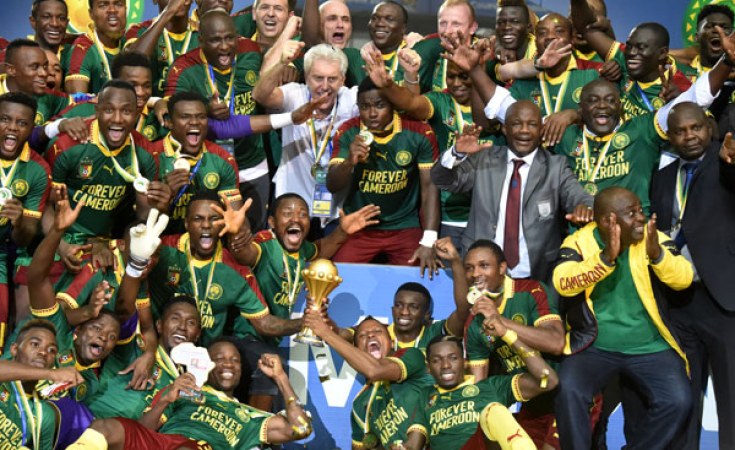Much has been made of the low number of goals after the opening round of group phase matches at the 2017 African Nations Cup, with teams accused of being too cautious and too scared to lose.
But is the tally of 12 goals after eight matches that unusual, or merely a continuation of what we have seen in the past? ALLAFRICA runs through the numbers of the previous 10 tournaments, including the on-going finals in Gabon.
The quick answer is that it is the lowest number of goals scored over this period since a paltry five were netted after eight games of the 2002 finals in Mali.
And it is less than half the number netted in the 2008 finals in Ghana, where teams set up to attack, almost to the point of being reckless as 26 goals were scored after the opening round of group games.
The boom period for goals at the Nations Cup in recent times was the tournaments from 2006 to 2010, all won by Egypt as it happens.
The reason why this would be the case, and why it has since been scaled back, is difficult to determine, but trends in African football are usually linked as well to what is happening in global football.
Not that we can always rely on statistics. The 2006 World Cup in Germany is generally regarded as a great festival of football, with exciting and innovative play that saw 147 goals scored in the tournament.
The tournament in South Africa four years later in 2010 was a great party off the pitch, but from a football point of view was criticised for being dour, yet it saw 143 goals scored, just four fewer than in Germany. Perception is everything.
But during the period in the early 2000s to 2010, there was certainly an attempt to change the way international football was played by coaches.
The 4-2-4-1 formation came into vogue and perhaps not everybody got it right straight away. It is still something that is used today, but less so, as the 3-5-2 is now in fashion.
The goals scored in this finals after eight games is just one more than in South Africa four years ago, but some seven less than in Equatorial Guinea in the previous finals in 2015.
The reasons for the low totals this year is likely the ever increasing expectations that means some teams make sure they do not lose their opening match, rather than go for the win, the poor pitches in Oyem and Port-Gentil and, if we are being frank, a lack of quality at times.
The science that goes into sport these days has levelled the playing field and closed the gap between the so-called giants and the minnow sides, which means we do not see the big scorelines of old.
Teams are better organised, players better drilled and more professional in executing their tasks, the football is probably 'technically' better for it.
But that does not mean it is more entertaining for fans, which, for those in the stadium and watching at home, is probably all that counts.
GOALS AT LAST 10 NATIONS CUP FINALS AFTER EIGHT GAMES
2017
Venue: Gabon
Goals after eight games: 12
2015
Venue: Equatorial Guinea
Goals after eight games: 19
Total goals: 68
2013
Venue: South Africa
Goals after eight games: 13
Total goals: 69
2012
Venue: Equatorial Guinea/Gabon
Goals after eight games: 15
Total goals: 76
2010
Venue: Angola
Goals after eight games: 22*
Total goals: 71**
*From seven matches after Togo withdrew from the competition due to terrorist attack on team bus.
**From 29 matches.
2008
Venue: Ghana
Goals after eight games: 26
Total goals: 99
2006
Venue: Egypt
Goals after eight games: 20
Total goals: 73
2004
Venue: Tunisia
Goals after eight games: 18
Total goals: 88
2002
Venue: Mali
Goals after eight games: 5
Total goals: 48


